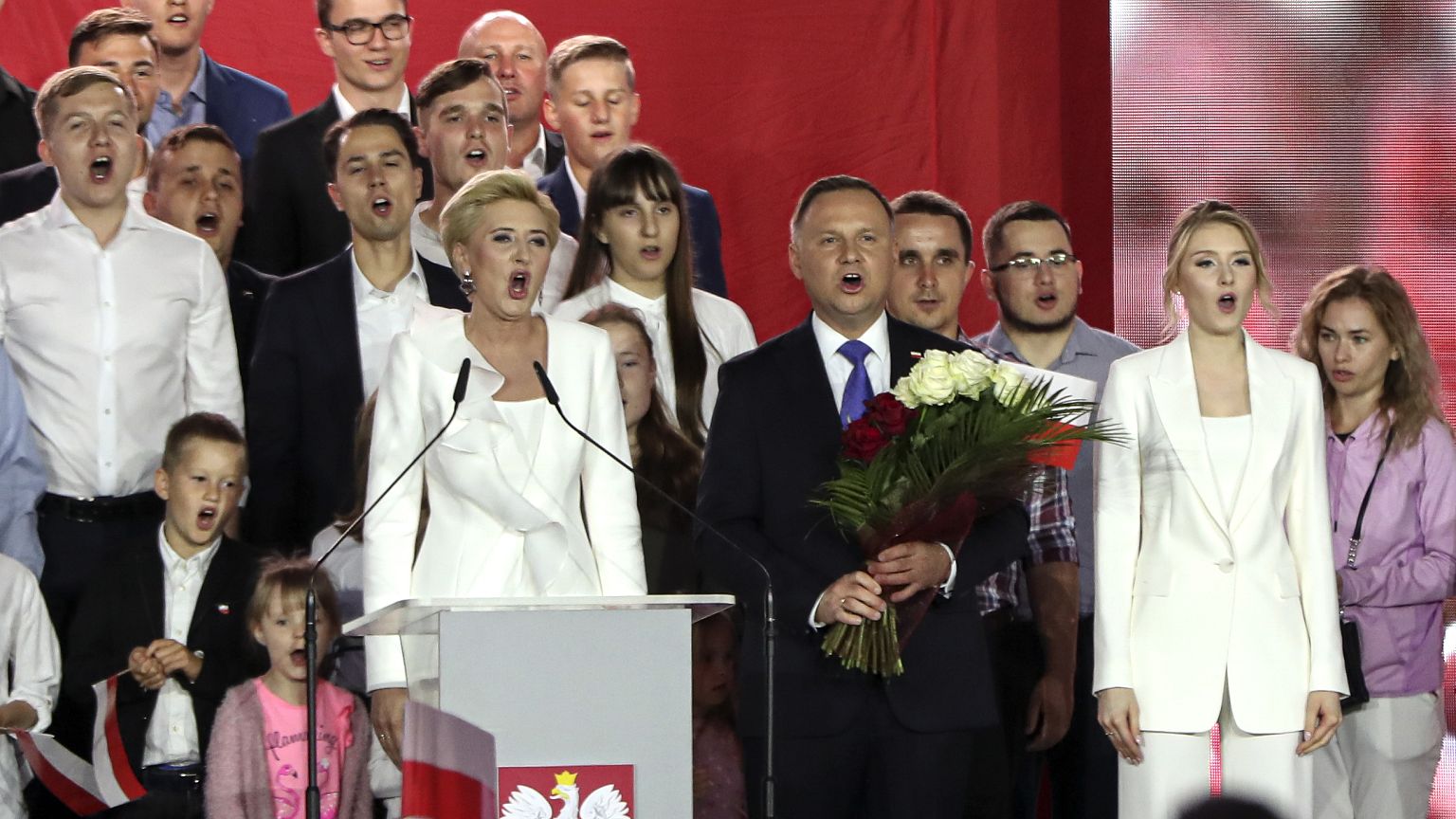Brussels and Warsaw have long clashed over judicial reforms in Poland. Is that set to continue?
 ADVERTISEMENT
ADVERTISEMENT
Conservative-nationalist Andrzej Duda has clinched a slim victory in the Polish presidential elections.
His win means he could continue with controversial reforms of Poland's judicial system, which has set the country on a collision course with Brussels.
Critics say Poland is undermining judicial independence. The latest proposal aims to discipline judges who criticise the reforms.
The European Union has already raised concerns about earlier reforms that Brussels said removed the separation of powers between the government and the judiciary. It launched its article seven procedure against Warsaw, that can ultimately deny a country its EU voting rights. But the action has had limited results, so far.
"So far there has been a mixed record of the European Union central institutions acting on the rule of law backsliding in their member states," said Jakub Jaraczewski, legal officer at Democracy Reporting International.
"The court of justice of the EU has been somewhat successful with some of its rulings and interim measures so far. However, the article 7 dialogue with Poland, for example, is pretty much stalled and not going anywhere at this point."
There are now growing calls to link EU money, of which Warsaw is the largest recipient, to the respect for the rule of law.
But those safeguards may fall foul of forthcoming negotiations over the €750 billion coronavirus recovery fund.
This funding — aimed at helping EU countries bounce back from the coronavirus lockdown — could be made conditional.
But, added Jaraczewski, the devil will be in the detail.
"Whether it would be actually able to affect countries, not just Poland, but other countries, where rule of law, democracy and human rights were to be at risk. Or whether it is going to be watered down and turned into a mechanism that would simply be a checkbox which the EU institutions will sign off on their way to agreement on the budget and will have no actual impact."
Leaders of European countries meet later this week to thrash out a deal on the coronavirus recovery package.













